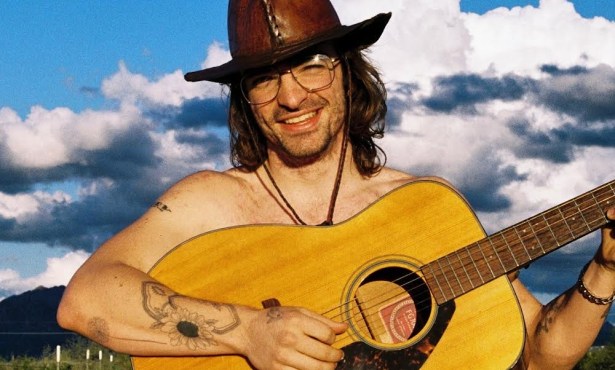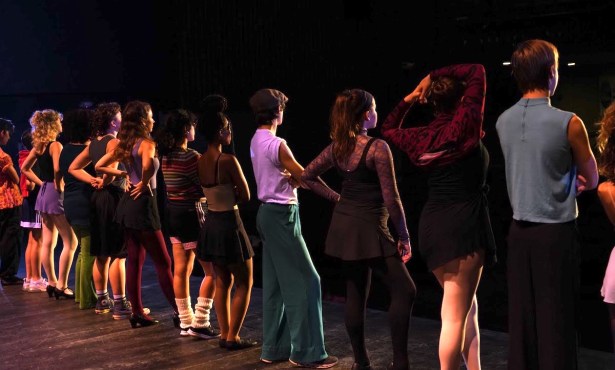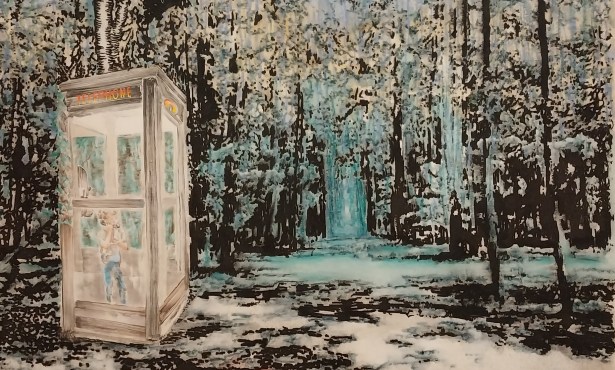Thomas Steinbeck Makes History
S.B. Author Dishes On Newest Novel
Thomas Steinbeck — war photographer, artist’s advocate, writer, oldest son of Nobel laureate John Steinbeck, and Santa Barbara resident — has published a new novel. With a story collection and another novel already under his belt, his latest work is The Silver Lotus, a love story between an American merchant sailor and Lady Yee, the daughter of a Cantonese merchant family. Set against the early stages of development along the California coast, it is part historical novel, part romance, and has been called “beautifully crafted” and “written with the grace and clarity of a folk tale” by the dean of Santa Barbara-based fiction writers, T. C. Boyle. Steinbeck recently spoke to The Santa Barbara Independent about literature, history, and life in California.
What was your inspiration for writing this book?
An understanding of the contribution of a lot of minorities in California. I’ve grown up believing that California was really rich because of the number of minorities we have. I come from Monterey County. Chinese, Japanese, Filipino, Portuguese, Italian — it was a very rich cultural place. They made major contributions to the life of those communities that weren’t really acknowledged. The people whom I designed Lady Yee off of, at least that point in her life where she got to Monterey, had a big influence on the ability of certain minorities to assimilate. So I invented this creature in a previous book, In the Shadow of the Cypress, which is about the Chinese discovering California, long before Columbus. I was just so fascinated that I decided to write her a separate book.
You write historical fiction, and this is a historical novel. What was the extent of your research for the book?
Well, a lot of the research I grew up with. It’s about Monterey. I’ve known about the Chinese communities there and what happened to them for a long, long time. I’m an amateur historian. It’s my passion. I write fiction, but I read nothing but nonfiction. I read histories a great deal. I’m fascinated by all histories. Cultural histories, Chinese history, Western history, it doesn’t make a lot of difference. I’m fascinated by what happens when they come in close contact with each other. That seemed to be California to a nub. We think about what white people do in Congress with people of other races, but you rarely think about how the Chinese and the Portuguese get along. They have another complete agenda going. It just fascinates me.
What is your writing process like?
I write every day, more or less, depending on what’s being required of me in other locations, because I have other jobs that I have to do. It’s my greatest escape, and I love to do it. I’d do it whether I got paid or not, just because I enjoy it so much. It’s like any other writer’s schedule. There’s a deadline — usually “we wanted it yesterday” — and I try to meet it. You get to the point where you get so sick of what you’ve written, you just can’t take it anymore. By the time I finished with Lady Yee, man, I was sick of this woman. I was sick of Monterey. I equate it to stone sculpture. You start out with a big chisel and a big mount and you hive away at everything that you’re not talking about, and you get down to polishing the toenails. You’re constantly trying to remove all the crap and leave behind that which is essential. But that can take forever.
You published your first book of fiction in 2002 when you were almost 60 years old. Have you always written fiction, or was it something that sprung up later in life?
It was an accident. When you’ve got a Nobel Prize in the family, you’re not trying to compete with anybody. I’ve written all my life, but I never had any thought to write books because I knew people would think I’m riding my father’s coattails. That first book was written for the guests of the Post Ranch Inn. It was stories I’d heard for years since I was a kid. I just put them into print so people would take some interest in the area where they were spending $600 a night. An agent saw it and said, “We want to publish this.” One of the things I hated about writing films is that everybody becomes a critic. Suddenly, the producer’s mother-in-law doesn’t like a character. I got very spoiled writing a book. It was all mine. It was a very liberating experience, so I kept on doing it.
You’re a big proponent of author’s rights. How did you get involved with that cause?
Authors always been under the gun. You realize that the writers supply all the wisdom, but the people who supply the money have the power, and they believe it’s their work. I quit writing screenplays because I was realizing that I was giving away some really great material that I would never again be able to access. I didn’t own it anymore. So that’s how I got into it, trying to tell writers and poets to stick to your copyright, don’t let anyone get their hands on it. Now that we’re in the electronic age, everything is shifting around as we speak. I’m not opposed to any of it, but writers are beginning to lose their pay scale base. The electronic publishing industry is making us poorer, not richer. I don’t know what’s going to happen with it, but it’s really interesting. Luckily, I’m too old to worry about what’s going to happen in the long run.
Since we’re on the topic — you’re the son of one of America’s biggest literary figures, you’re an author in your own right, and you’re an advocate of author’s rights, so you’re someone who I think can really speak with authority on this matter. What do you think of the state of publishing and literature in America today?
In the 1930s, 1940s, 1950s, the heyday of hot American writing, the whole industry was controlled by an incredibly small number of people. A lot of people had no access to it. As access increased, things changed. I think it’s going through another revolution now. But literature in this country is always going through a state of revolution. What’s intolerable one day becomes accepted the next. One moment, Ken Kesey is anathema; the next moment, he’s an expert. Steinbeck is — at one point — a commie; now he’s an American icon. My father did say one thing. I asked him, “How do you know when you’ve become famous?” He said, “You wont know until you’ve been dead for 20 years.” My father seemed to be under attack most of his life. He was adored by a certain quadrant of the population, but, in most cases, he was under attack.
You mentioned you only read nonfiction. I was wondering what some of your favorite books or who some of your favorite authors are?
When I say I only read nonfiction, that’s not really true. I’ve read a lot of classical fiction. I’ve read all of Dickens. I’ve read all of Twain. A great deal of historical fiction. And modern fiction too that I really enjoy. As a general rule, I don’t, though. I like learning things I don’t know. It’s just a thing with me. There are a lot of writers out there that are great fun to read, but there are only so many hours in the day, and I have these larger questions that I’m trying to answer for myself which require knowledge of the world as it is as opposed to the world as I’d like it to be. Especially if I’m writing fiction myself, I need historical precedence in order to buttress what I’m writing. If I’m writing fiction, the best way to get across what I want to say is by squeezing it in between absolute truth. So the readers trip over this invention of mine while they’re getting historical facts.
You’ve been a photographer, a journalist, a painter, a filmmaker, and now a writer. Is there any one particular thing you consider your calling or your purpose?
I hope not. I was always hoping that I got to experience a great many things before I die. At no particular point did I pick up and say, “That’s what I want to do for the rest of my life.” I loved studying sculpture and painting in school, but I realized that I couldn’t do that for the rest of my life. I grew up with artists, journalists, writers. I think it just came down to the fact that, in one sense, I wanted to create my own little world. I didn’t mean to be a cameraman in Vietnam. I thought maybe I could take the right photograph and these people will wake up and stop this stupid war. We took some amazing photos, but it didn’t stop people from killing each other. I went from thing to thing hoping it would supply me with amusement and enlightenment, mostly enlightenment. It adds to my perspective on humanity. I’ve done lots of things, but not one of them supplied everything I wanted. Nothing will, which is just as well. Then I won’t become overly comfortable.



